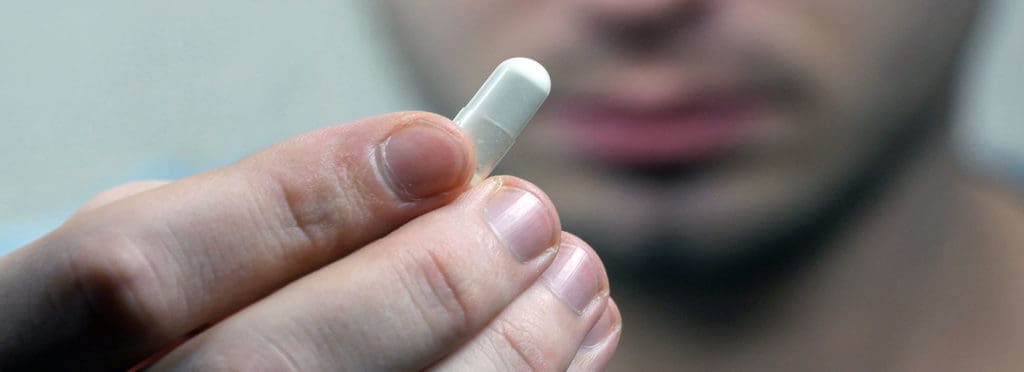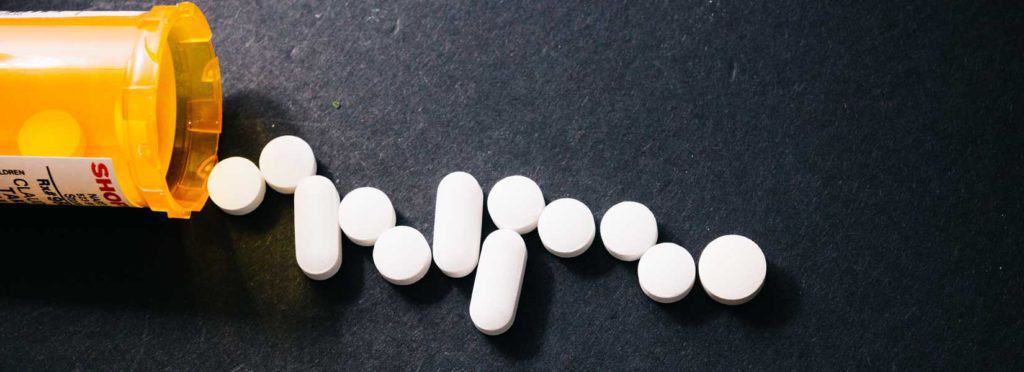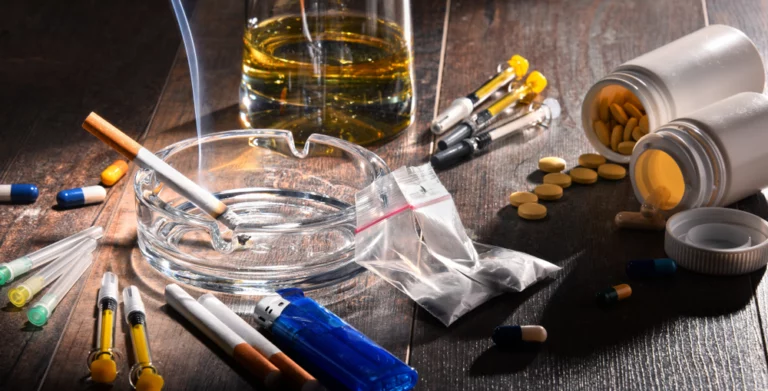Vyvanse: Uses, Side Effects, & Dosages— Why Is It So Popular Among Americans?
What Is Vyvanse: Vyvanse Uses & Dosages
Vyvanse is a prescription medication used to treat Attention Deficit Disorder (ADD), Attention Deficit Hyperactivity Disorder (ADHD), and Binge Eating Disorder (BED). It works as a central nervous system stimulant. Vyvanse is taken by mouth in the form of a chewable tablet or capsule, and these can range in dosage strength from 10mg to 70mg. Vyvanse is a long-acting drug, meaning it releases gradually over time, so not all of the effects will be felt at once in a strong rush. The effects of Vyvanse work steadily throughout the day.
Vyvanse Side Effects
According to the Vyvanse official website, Vyvanse can have different side effects depending on whether a person is taking the medication to treat ADHD or BED. If an individual is taking this medication without the proper diagnosis or prescription, it is important to be aware that any of these side effects may occur. The website also states, “Vyvanse is a federally controlled substance (CII) because it can be abused or lead to dependence. Keep Vyvanse in a safe place to prevent misuse and abuse. Selling or giving away Vyvanse may harm others and is against the law.”
The most common side effects of Vyvanse in ADHD include:
- Anxiety
- Decreased appetite
- Diarrhea
- Dizziness
- Dry mouth
- Irritability
- Loss of appetite
- Nausea
- Trouble sleeping
- Upper stomach pain
- Vomiting
- Weight Loss
The most common side effects of Vyvanse in adults with moderate to severe B.E.D. include:
- Dry mouth
- Trouble sleeping
- Decreased appetite
- Increased heart rate
- Constipation
- Feeling jittery
- Anxiety
Serious side effects of Vyvanse have also been reported. If you or someone near you is experiencing any of the symptoms below, it is imperative to seek medical attention immediately, as some of these side effects from Vyvanse can be life-threatening.
Serious side effects of Vyvanse may include:
- Blurred vision
- Heart problems
- Increased heart rate
- Heart palpitations
- High blood pressure
- Heart attack
- Stroke
- Cardiac arrest
- Mental health changes
- Mood swings
- Agitation
- Mania
- Depression
- Hallucinations
- Muscle spasms
- Swelling of extremities
- Extreme fatigue
- Rapid weight loss
Why Is Vyvanse So Popular Among Americans?
Vyvanse, which was approved by the FDA in 2007, is now one of the most prescribed stimulants in the United States. Millions of people take it every day. Vyvanse does not need to be taken with food, and releases slowly and steadily throughout the day.
According to research, Vyvanse may have a lower risk of abuse than many similar medications, such as Adderall and Ritalin, due to its chemical makeup. The body has to convert Vyvanse into its active compound, dextroamphetamine, to be effective, which makes it last longer. The extended-release of Vyvanse also eases extreme symptoms of euphoria and crash.
Vyvanse is commonly abused by college students as a “study aid” to help them focus, but recent research published in 2020 shines an interesting new light on the ability of ADHD medications like Ritalin and Vyvanse to increase focus.
A summary of the study, titled “Ritalin and similar medications cause the brain to focus on benefits of work, not costs” states, “” People tend to think, ‘Ritalin and Adderall help me focus,'” said Michael Frank, the study’s co-senior author and a professor of cognitive, linguistic and psychological sciences at Brown. “And they do, in some sense. But what this study shows is that they do so by increasing your cognitive motivation: Your perceived benefits of performing a demanding task are elevated, while the perceived costs are reduced. This effect is separate from any changes in actual ability.”
According to Frank, stimulants such as Ritalin increase the amount of dopamine released in the striatum, a key region in the brain related to motivation, action, and cognition. Previous research has shown that dopamine, a “chemical messenger” that ferries information between neurons, can greatly influence cognitive and physical behavior. Several past studies have found, for example, that both rodents and humans are more motivated to perform physically demanding tasks with higher dopamine.”
Research studies and results are constantly being published on Vyvanse and similar stimulants, as their prevalence, use, and misuse in the United States and abroad continues to increase.
Vyvanse Abuse and Addiction
Even with a possibly lower risk of abuse than some other medications, Vyvanse is still frequently misused and abused, and Vyvanse addiction is certainly still possible. Vyvanse abuse could look like taking a higher dose of Vyvanse than you are prescribed, or taking Vyvanse without a proper diagnosis and prescription altogether.
One research study titled, “Prescription stimulants in individuals with and without attention deficit hyperactivity disorder: misuse, cognitive impact, and adverse effects” states, “The misuse of a stimulant medication – taking a stimulant not prescribed by a physician or in a manner not in accordance with physician guidance – has been growing over the past two decades. In fact, in the past 10 years, there has been a surge in prevalence rates of nonprescription stimulant use among both adolescents and young adults. […] The majority of research on the misuse of prescription stimulants has focused on undergraduate college students.

The nonprescription use of stimulants has increased in this population, to the extent that the misuse of prescription stimulants is second only to marijuana as the most common form of illicit drug use among college students […] The reasons why prescription stimulants are misused are numerous and include achieving euphoria and helping cope with stressful factors related to their educational environment.
According to a survey of 334 ADHD-diagnosed college students taking prescription stimulants, 25% misused their own prescription medications to get “high.” […] Students who misused ADHD medications generally felt that doing so was helpful. Thus, prescription stimulants developed to help children with ADHD improve their focus and attention are often misused by the patient, especially ADHD patients with conduct disorder or comorbid substance abuse (Kollins 2008). Moreover, students without ADHD misuse stimulants to improve performance or to induce euphoria.”
If a person is regularly abusing Vyvanse, they will likely develop a tolerance for the drug over time. This will lead to the body requiring more of the prescription drug for the individual to feel the desired effects like euphoria and increased focus. As tolerance develops, so can a physical and psychological dependence, leading to Vyvanse addiction. Although Vyvanse has been created with abuse-deterrent properties, abuse and Vyvanse addiction are still possible. There are adverse consequences to chronic abuse of Vyvanse, which may include:
- Heart palpitations and arrhythmias
- Chest pains or heart attack
- Elevated blood pressure
- Stroke
- Seizures
- Psychosis, including hallucinations or paranoia
Vyvanse Addiction Treatment At Oasis Recovery
If you or someone you love has developed an addiction or dependence on Vyvanse or other drugs or alcohol and are wondering how to get sober, we encourage you to reach out to the professionals at Oasis Recovery to learn more about our personalized treatment programs and mental health services. Recovery is always possible. Our experts work with you to design a treatment plan that fits your needs. Common treatment programs include:
- Intensive Outpatient Programs (IOP)
- Full-time Addiction Treatment on campus
- Aftercare Services
You no longer have to struggle with addiction alone. We at Oasis Recovery are here for you and prepared to help. Contact us today for more information about how our programs and services can help you get your life back on track.











